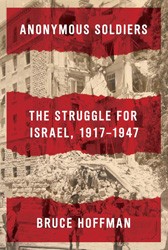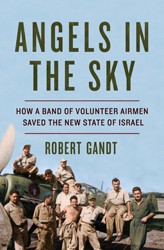Interview
How does 1948 compare to your previous work?
In the past, I have written about one particular aspect of the war— about the creation of the Palestinian refugee problem in 1947 – 49, for example, or more generally about the course of the Zionist-Arab conflict from 1881 to 2000. In this book I address the whole of the 1948 War in its political and military aspects, taking in as well the international context and interventions, the Arab world, and the internal Israeli scene. I try to present a good overall picture of what happened and why, from the UN handling of the Palestine issue to the Israeli- Arab armistice agreements that ended the war.
What do you think at bottom is the cause of the Arab-Israeli conflict?
I would say that there is a territorial dispute between two peoples who claim the same patch of land. It is a very small patch of land, and so the idea of dividing it between the two is extremely problematic in a technical sense.
But it is also a cultural-religious conflict between the Islamic East and the West. The Islamic Arab world sees Israel — as it sees itself — as an offshoot and outpost of the West in — in their view — a Muslim area and as an infidel, invasive presence. Israel and Zionism are seen by the Islamic Arab world, and by the wider Islamic world, as illegitimate. This, at root, is the cause of the ongoing conflict. Were they to accord it legitimacy, the problem in Palestine/Israel would be soluble. At present, given this mindset, it isn’t.
Are there any lessons to be learned from the study of the 1948 War?
To be sure, many Israelis will learn that they must remain strong and technologically advanced; otherwise they will be overwhelmed by Arab numbers and fervor. The Arabs might learn that they must improve themselves, at least on a technological- scientific level, and better their societies and armies if they hope to overcome Israel— though it is possible that if they do, they may lose the desire to destroy Israel.
Others may simply learn about the conflict and the nature of the two contending societies, at least as they were in 1948, and with certain implications for the present and future.




